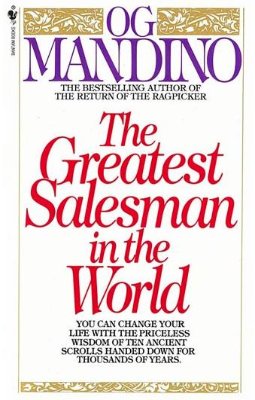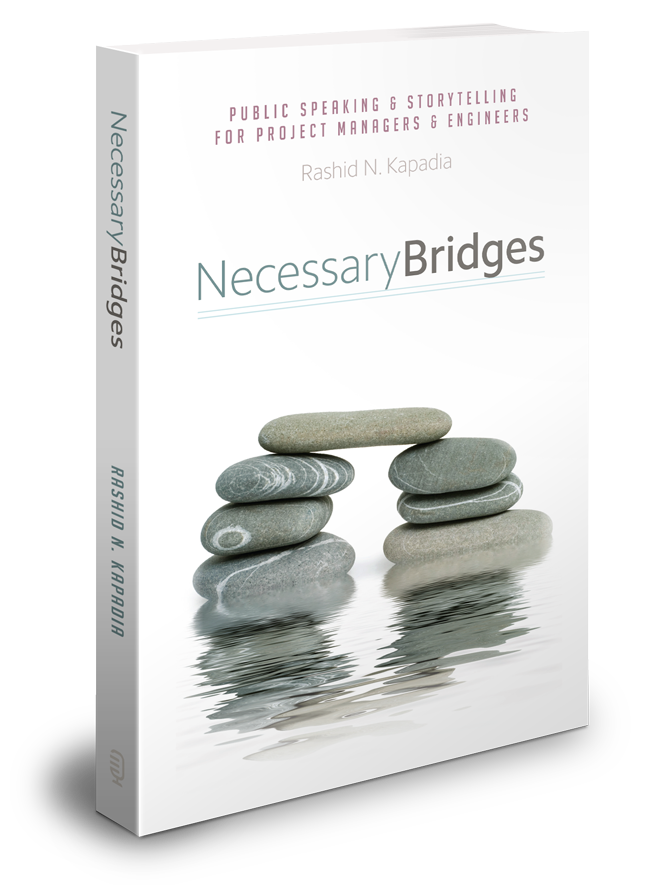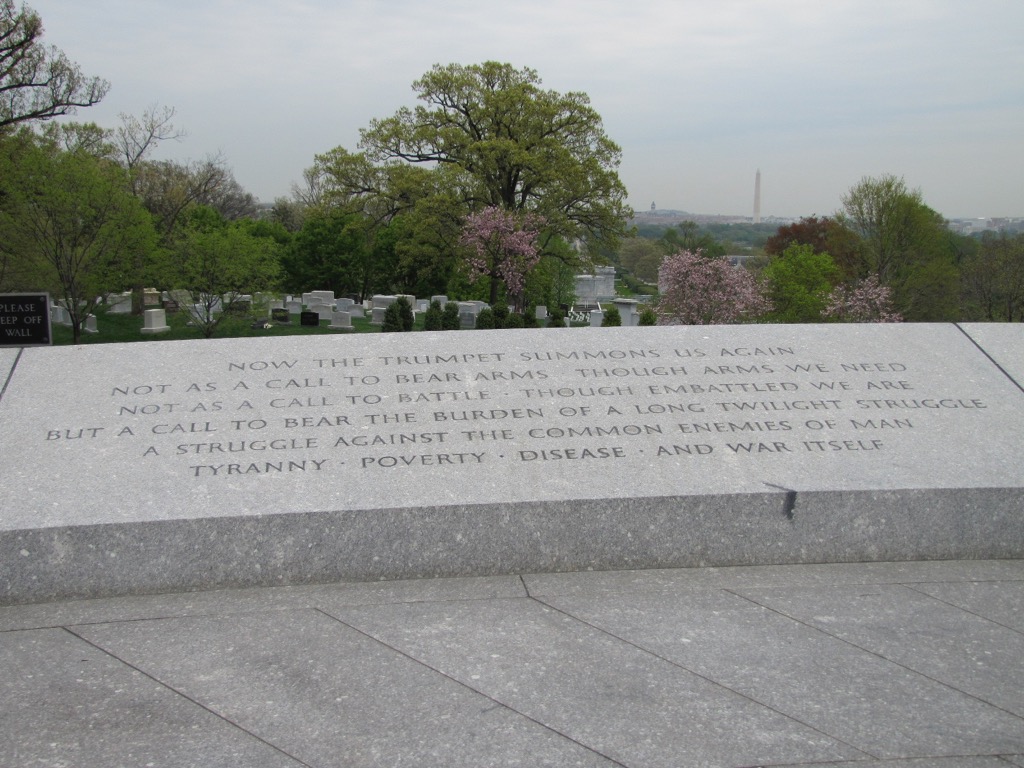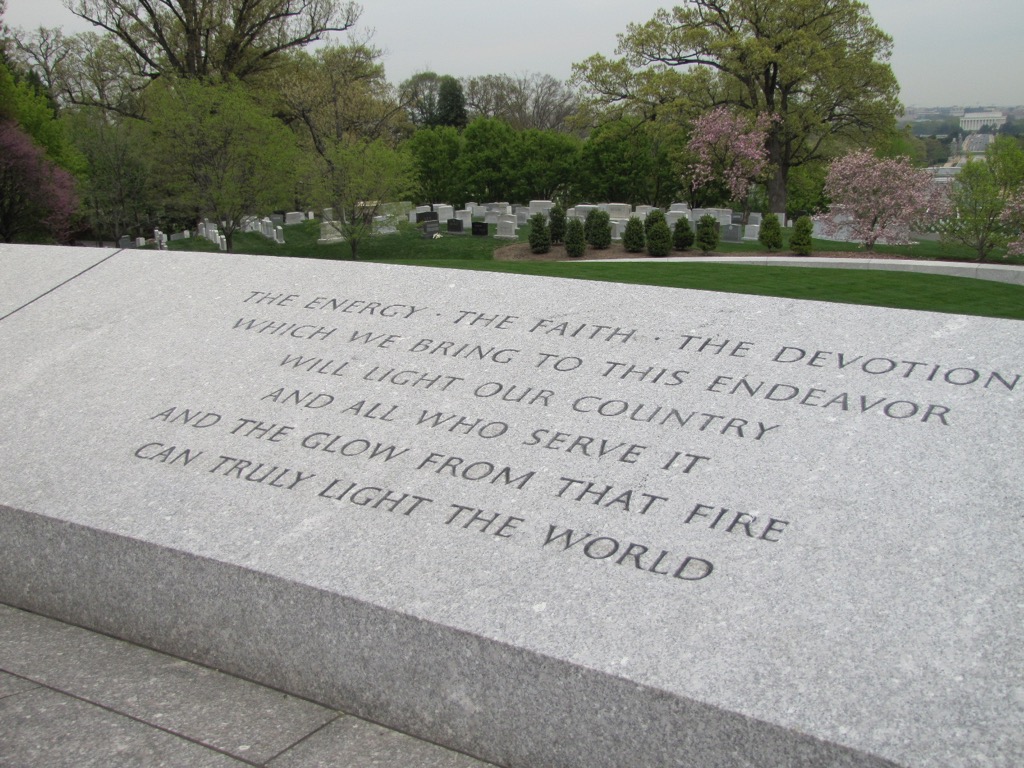First—3 examples of Antimetabole:
- Let us never negotiate of out fear. But let us never fear to negotiate.
- Mankind must put an end to war/nuclear weapons. Or war/nuclear weapons will put an end to mankind.
- Ask not what your country can do for you. Ask what you can do for your country.
Next—3 examples of Contrast:
- That’s one small step for man; one giant leap for mankind.
- Dignity consists not in possessing honors, but in the consciousness that we deserve them.
- The test of our progress is not whether we add more to the abundance of those who have much; it is whether we provide enough for those who have too little.
There is precision, power, and poetry in all these examples. Yet they are merely rhetorical devices. Every leader and presenter can harness the power of these rhetorical tools.
Whether you are a presenter or a team leader, clear communication is expected from you. Clear communication is effective and appreciated. It is 100% your obligation and opportunity to be an effective communicator.
Clear communication follows clear thinking. I’m surprised how few people recognize this simple fact. Without clear thinking, there can be no clear communication. See Appendix 1 for more.
After, and only after there is thought clarity, comes the task of delivering the message as effectively as possible. Clarity and brevity are cornerstones of effective communication.
In order to get to clarity and brevity, I have found Antimetabole and Contrast to be super-effective rhetorical devices.
Antimetabole. A word derived from Greek. The repetition of words in transposed order. Antimetabole can be used to rhetorically express irony, complexity, and make a 2-sided argument concisely, with precision and a poetic type of beauty. (pronunciation)
Contrast. An effective technique. Well known to classical writers on rhetoric. Also referred to as antithesis, enantiosis and antitheton.
In his book Lend Me Your Ears: All You Need to Know About Making Speeches & Presentations, author Max Atkinson writes, From research based on videotapes of more than 500 political speeches, we know that the contrast has lost none of its force, and is responsible for prompting a large proportion of applause. These lines strike such an immediate chord, that they stand a better chance of surviving beyond the moment. This increases their chance of being remembered, reproduced in newspapers, radio and television. And in some cases being preserved as quotations. So, for at least 2,000 years, many of the quotations that have survived have involved the use of contrast. Examples:
- It is more blessed to give than to receive. The Bible
- I come to bury Caesar, not to praise him. Julius Caesar
- Those who cast the votes decide nothing. Those who count votes decide everything. Joseph Stalin
As a presenter or team leader, you want your messages to be memorable and repeatable. For memorability and repeatability use Antimetabole and Contrast. They work!
There are many variants on contrast. To learn more I highly recommend Max Atkinson’s book. Here is a flavor:
- Contradictions—not this but that. Example: The ultimate measure of a man is not where he stands in moments of comfort, but where he stands at times of change and controversy. Martin Luther King
- Comparisons—more this than that. Example: For better or for worse, for richer or for poorer. Marriage vows
- Opposites—black or white.
Example 1: The evil that men do lives after them. The good is of interred with their bones. Mark Anthony (Julius Caesar-Shakespeare).
Example 2: The inherent vice of capitalism is the unequal sharing of blessings. The inherent virtue of socialism is the equal sharing of miseries. Winston Churchill
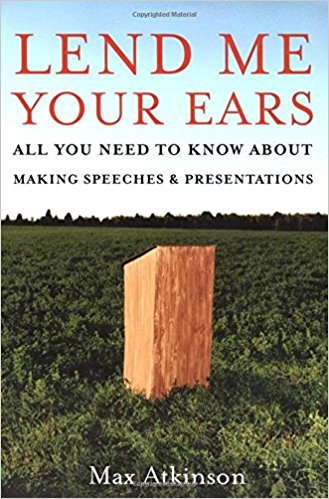
There is a precision, conciseness, and beauty in these rhetorical devices that remind me of the precision, conciseness and beauty of formulas in engineering, mathematics and physics. I think many in engineering, math and physics will specially appreciate this.
And a couple of cautions:
- Use literary devices to reinforce memorability, not confuse, impress or distract.
- Employ elevated but not grandiose language.
Example of skilled use of Antimetabole and Contrast (spoken word)
In my opinion, the John F Kennedy-Ted Sorensen leadership-speechwriting duo is one of the greatest ever. They used both Antimetabole and Contrast a lot. And they were able to convey many memorable and repeatable ideas with power and poetry.
Let’s take an in-depth look at JFK’s Jan 20, 1961 Inaugural address. American Rhetoric, rates this as the 2nd top speech from its top 100 speeches of the last century.
JFK’s complete Inaugural Address can be seen in Appendix 3.
Thurston Clarke, author of Ask Not: The Inauguration of John F. Kennedy and the Speech that Changed America, breaks down the speech into (1) Prologue = 5 paragraphs, (2) Pledges & “Let Us” litanies = 14 paragraphs & (3) Conclusion = 8 paragraphs
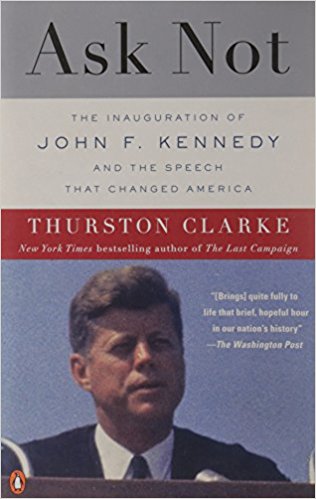
The use of Antimetabole and Contrast (& other rhetoric devices) elevated this speech to immortality.
- not a victory of party but a celebration of freedom
- symbolizing an end as well as a beginning
- signifying renewal as well as change
- the rights of man come not from the generosity of the state but from the hand of God
- to friend and foe alike
- whether it wishes us well or ill
- United there is little we cannot do in a host of cooperative ventures. Divided there is little we can do
- not because the communists may be doing it, not because we seek their votes, but because it is right.
- If a free society cannot help the many who are poor, it cannot save the few who are rich.
- this peaceful revolution of hope cannot become the prey of hostile powers.
- the instruments of war have far outpaced the instruments of peace
- we offer not a pledge but a request
- civility is not a sign of weakness
- sincerity is always subject to proof.
- Let us never negotiate out of fear. But let us never fear to negotiate.
- Let both sides explore what problems unite us instead of belaboring those problems which divide us
- bring the absolute power to destroy other nations under the absolute control of all nations
- invoke the wonders of science instead of its terrors.
- beachhead of cooperation may push back the jungle of suspicion
- not a new balance of power, but a new world of law
- All this will not be finished in the first one hundred days. Nor will it be finished in the first one thousand days, nor in the life of this Administration, nor even perhaps in our lifetime on this planet. But let us begin.
- In your hands, my fellow citizens, more than mine
- not as a call to bear arms, though arms we need
- not as a call to battle, though embattled we are
- rejoicing in hope, patient in tribulation
- And so, my fellow Americans: ask not what your country can do for you–ask what you can do for your country.
- My fellow citizens of the world: ask not what America will do for you, but what together we can do for the freedom of man.
Another example of Antimetabole and Contrast (written word)
Author Og Mandino uses rhetoric devices with great skill too.
I ask not for gold or garments or even opportunity equal to my ability; Instead guide me so that I may acquire ability equal to my opportunities.
Help me to remain humble through obstacles and failures; yet hide not from mine eyes the prize that will come with victory.
Assign me tasks to which others have failed; yet guide me to pluck the seeds of success from their failures.
Confront me with fears that will temper my spirit; yet endow me with courage to laugh at my misgivings.
Spare me sufficient days to reach my goals; yet help me to live this day as though it be my last.
Guide me in my words that they may bear fruit; yet silence me from gossip that none may be maligned.
Discipline me in the habit of trying and trying again; yet show me a way to make use of the law of averages.
Favor me with alertness to recognize opportunity; yet endow me with patience which will concentrate my strength.
Bathe me in good habits that the bad ones may drown; yet grant me compassion for weakness in others.
Suffer me to know that all things shall pass; yet help me count my blessings of today.
Expose me to hate so it be not a stranger; yet fill my cup with love to turn strangers into friends.
Take-Away Action Item
Rhetorical devices—including Antimetabole and Contrast—as instruments of persuasion are under-appreciated and under-utilized by many leaders and presenters. Give yourself an easily obtainable advantage. Add Antimetabole and Contrast to your thinking, speaking, and writing.
GOOD LUCK!
______________________________________________________________________
Every engineer can be a better engineer
by being a better pubic speaker and storyteller
Every professional can be a better professional
by being a better pubic speaker and storyteller
Every citizen can be a better citizen
by being a better pubic speaker and storyteller
I help citizens, professionals, and engineers become better public speakers and storytellers. www.NecessaryBridges.com
Book Description
Necessary Bridges: Public Speaking & Storytelling for Project Managers & Engineers
Every engineer & STEM professional can articulate an engineering & STEM challenge as eloquently and inspirationally as the speaker does in the audio of this clip. At the very least, every engineer and STEM professional can aspire to do so.
STEM = Science Technology Engineering Mathematics
Audio = JFK/moon speech segment/Rice University Sept 12, 1962
______________________________________________________________________
APPENDIX 1
QUORA question and answer (with >14.5k views): How can I improve my ability to explain things?
Clear writing, clear speaking and clear explaining are a direct result of clear thinking.
Clear communication is a result of clear thinking.
Focus on making your thinking (about whatever you want to explain) very clear.
If you try and write down what you want to explain, you may well discover that your thinking is not clear. Use the best practices of business writing. Keep it short, to the point, and get to the core message / issue as quickly as possible.
Once you have thinking clarity on a subject matter, explanation will flow naturally.
Good communication rests on 4 pillars: clarity, brevity, levity, charity.
Another useful guideline / checklist for effective communication is: connection, narration, explanation, persuasion, and revelation.
While explaining, pay attention to the facial expressions of the person you are talking to. You will receive invaluable feedback on whether they are following or not. Use this feedback to modify your explaining. Don’t go on endlessly if you sense you have lost the listener.
Anyone can do this. It is a learnable skill. You can do this. GOOD LUCK!
______________________________________________________________________
APPENDIX 2: Sources of quotes and examples
- Let us never negotiate of out fear. But let us never fear to negotiate. John F. Kennedy
- Mankind must put an end to war. Or war will put an end to mankind. John F. Kennedy
- Ask not what your country can do for you. Ask what you can do for your country. John F. Kennedy
- That’s one small step for man; one giant leap for mankind. Neil Armstrong
- Dignity consists not is possessing honors, but in the consciousness that we deserve them. Aristotle
- The test of our progress is not whether we add more to the abundance of those who have much; it is whether we provide enough for those who have too little. Franklin D. Roosevelt
______________________________________________________________________
APPENDIX 3: JFK Inaugural:
President John F. Kennedy’s January 20, 1961 Inaugural Address
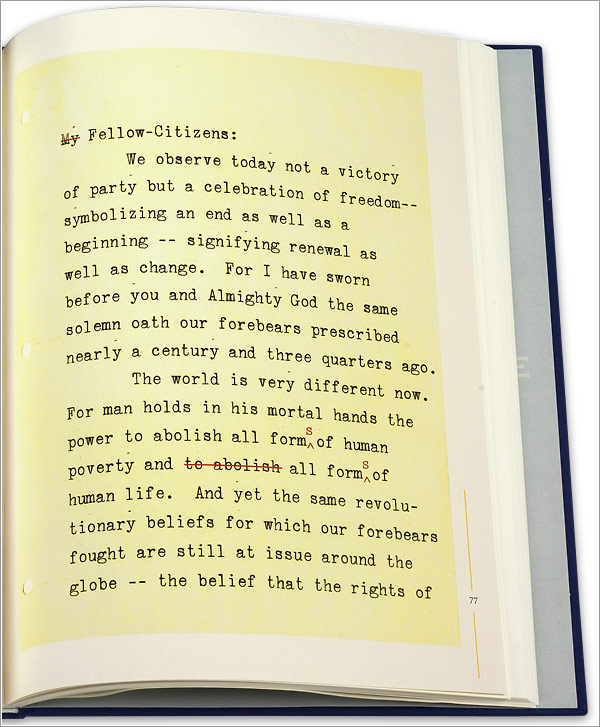 Vice President Johnson, Mr. Speaker, Mr. Chief Justice, President Eisenhower, Vice President Nixon, President Truman, Reverend Clergy, fellow citizens:
Vice President Johnson, Mr. Speaker, Mr. Chief Justice, President Eisenhower, Vice President Nixon, President Truman, Reverend Clergy, fellow citizens:
Paragraph 1
We observe today not a victory of party but a celebration of freedom–symbolizing an end as well as a beginning–signifying renewal as well as change. For I have sworn before you and Almighty God the same solemn oath our forbears prescribed nearly a century and three-quarters ago.
Paragraph 2
The world is very different now. For man holds in his mortal hands the power to abolish all forms of human poverty and all forms of human life. And yet the same revolutionary beliefs for which our forebears fought are still at issue around the globe–the belief that the rights of man come not from the generosity of the state but from the hand of God.
Paragraph 3
We dare not forget today that we are the heirs of that first revolution. Let the word go forth from this time and place, to friend and foe alike, that the torch has been passed to a new generation of Americans–born in this century, tempered by war, disciplined by a hard and bitter peace, proud of our ancient heritage–and unwilling to witness or permit the slow undoing of those human rights to which this nation has always been committed, and to which we are committed today at home and around the world.
Paragraph 4
Let every nation know, whether it wishes us well or ill, that we shall pay any price, bear any burden, meet any hardship, support any friend, oppose any foe to assure the survival and the success of liberty.
Paragraph 5
This much we pledge–and more.
Paragraph 6
To those old allies whose cultural and spiritual origins we share, we pledge the loyalty of faithful friends. United there is little we cannot do in a host of cooperative ventures. Divided there is little we can do–for we dare not meet a powerful challenge at odds and split asunder.
Paragraph 7
To those new states whom we welcome to the ranks of the free, we pledge our word that one form of colonial control shall not have passed away merely to be replaced by a far more iron tyranny. We shall not always expect to find them supporting our view. But we shall always hope to find them strongly supporting their own freedom–and to remember that, in the past, those who foolishly sought power by riding the back of the tiger ended up inside.
Paragraph 8
To those people in the huts and villages of half the globe struggling to break the bonds of mass misery, we pledge our best efforts to help them help themselves, for whatever period is required–not because the communists may be doing it, not because we seek their votes, but because it is right. If a free society cannot help the many who are poor, it cannot save the few who are rich.
Paragraph 9
To our sister republics south of our border, we offer a special pledge–to convert our good words into good deeds–in a new alliance for progress–to assist free men and free governments in casting off the chains of poverty. But this peaceful revolution of hope cannot become the prey of hostile powers. Let all our neighbors know that we shall join with them to oppose aggression or subversion anywhere in the Americas. And let every other power know that this Hemisphere intends to remain the master of its own house.
Paragraph 10
To that world assembly of sovereign states, the United Nations, our last best hope in an age where the instruments of war have far outpaced the instruments of peace, we renew our pledge of support–to prevent it from becoming merely a forum for invective–to strengthen its shield of the new and the weak–and to enlarge the area in which its writ may run.
Paragraph 11
Finally, to those nations who would make themselves our adversary, we offer not a pledge but a request: that both sides begin anew the quest for peace, before the dark powers of destruction unleashed by science engulf all humanity in planned or accidental self-destruction.
Paragraph 12
We dare not tempt them with weakness. For only when our arms are sufficient beyond doubt can we be certain beyond doubt that they will never be employed.
Paragraph 13
But neither can two great and powerful groups of nations take comfort from our present course–both sides overburdened by the cost of modern weapons, both rightly alarmed by the steady spread of the deadly atom, yet both racing to alter that uncertain balance of terror that stays the hand of mankind’s final war.
Paragraph 14
So let us begin anew–remembering on both sides that civility is not a sign of weakness, and sincerity is always subject to proof. Let us never negotiate out of fear. But let us never fear to negotiate.
Paragraph 15
Let both sides explore what problems unite us instead of belaboring those problems which divide us.
Paragraph 16
Let both sides, for the first time, formulate serious and precise proposals for the inspection and control of arms–and bring the absolute power to destroy other nations under the absolute control of all nations.
Paragraph 17
Let both sides seek to invoke the wonders of science instead of its terrors. Together let us explore the stars, conquer the deserts, eradicate disease, tap the ocean depths and encourage the arts and commerce.
Paragraph 18
Let both sides unite to heed in all corners of the earth the command of Isaiah–to “undo the heavy burdens . . . (and) let the oppressed go free.”
Paragraph 19
And if a beachhead of cooperation may push back the jungle of suspicion, let both sides join in creating a new endeavor, not a new balance of power, but a new world of law, where the strong are just and the weak secure and the peace preserved.
Paragraph 20
All this will not be finished in the first one hundred days. Nor will it be finished in the first one thousand days, nor in the life of this Administration, nor even perhaps in our lifetime on this planet. But let us begin.
Paragraph 21
In your hands, my fellow citizens, more than mine, will rest the final success or failure of our course. Since this country was founded, each generation of Americans has been summoned to give testimony to its national loyalty. The graves of young Americans who answered the call to service surround the globe.
Paragraph 22
Now the trumpet summons us again–not as a call to bear arms, though arms we need–not as a call to battle, though embattled we are– but a call to bear the burden of a long twilight struggle, year in and year out, “rejoicing in hope, patient in tribulation”–a struggle against the common enemies of man: tyranny, poverty, disease and war itself.
Paragraph 23
Can we forge against these enemies a grand and global alliance, North and South, East and West, that can assure a more fruitful life for all mankind? Will you join in that historic effort?
Paragraph 24
In the long history of the world, only a few generations have been granted the role of defending freedom in its hour of maximum danger. I do not shrink from this responsibility–I welcome it. I do not believe that any of us would exchange places with any other people or any other generation. The energy, the faith, the devotion which we bring to this endeavor will light our country and all who serve it–and the glow from that fire can truly light the world.
Paragraph 25
And so, my fellow Americans: ask not what your country can do for you–ask what you can do for your country.
Paragraph 26
My fellow citizens of the world: ask not what America will do for you, but what together we can do for the freedom of man.
Paragraph 27
Finally, whether you are citizens of America or citizens of the world, ask of us here the same high standards of strength and sacrifice which we ask of you. With a good conscience our only sure reward, with history the final judge of our deeds, let us go forth to lead the land we love, asking His blessing and His help, but knowing that here on earth God’s work must truly be our own.
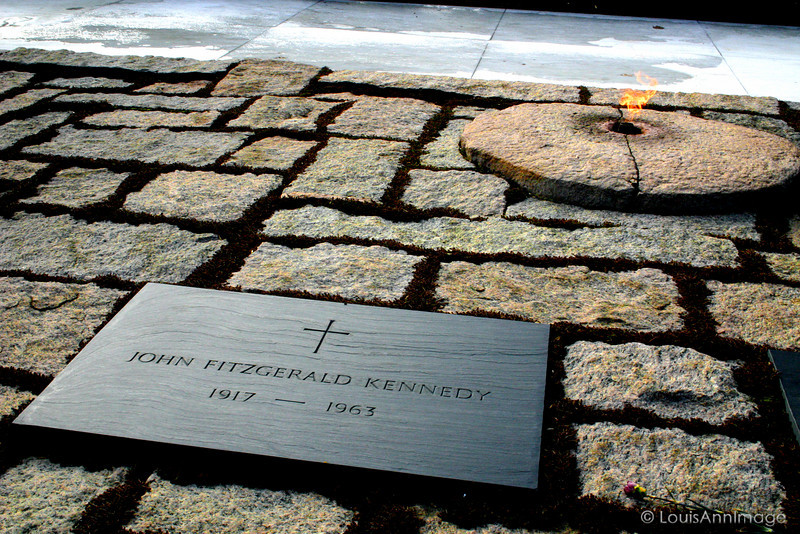
Seven sentences from this speech have been chiseled into granite at Kennedy’s grave in Arlington National Cemetery. Viewed by over 150 million visitors.
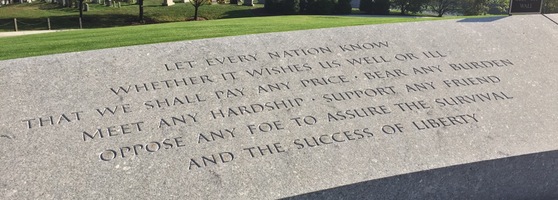
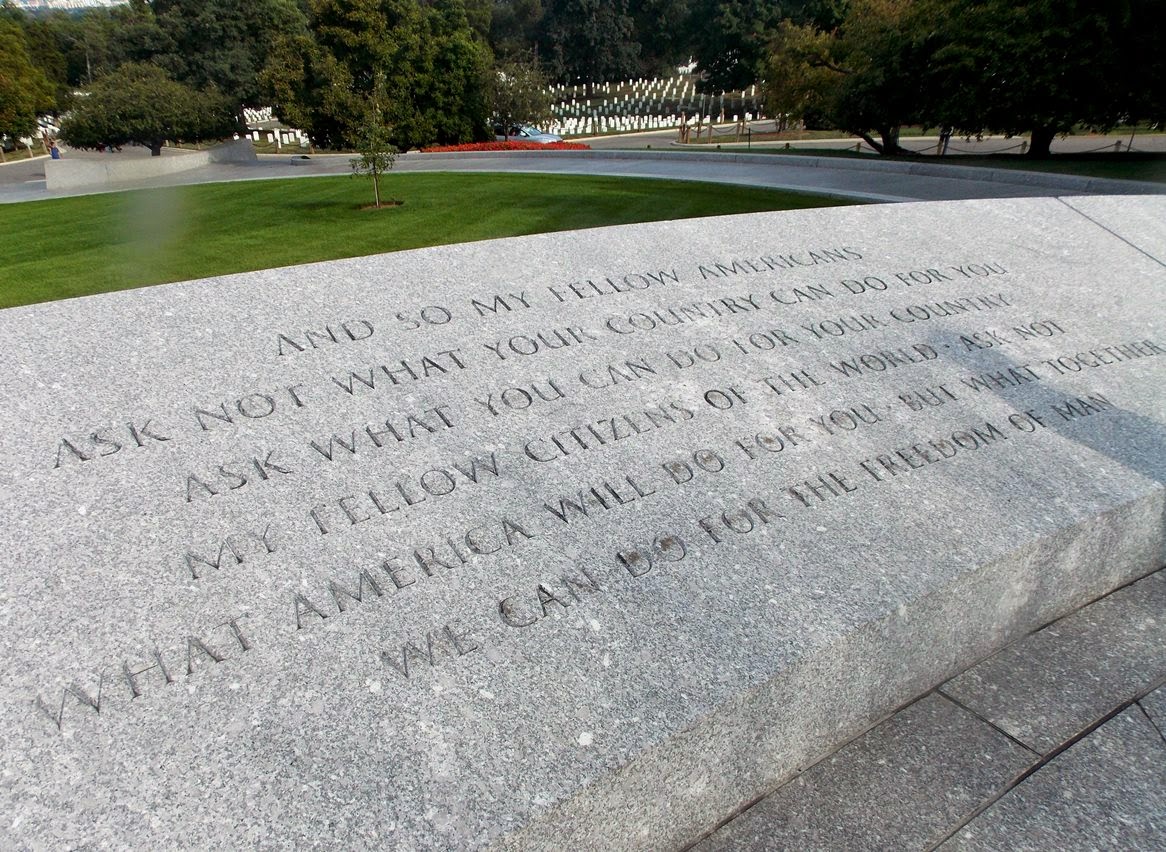
______________________________________________________________________
